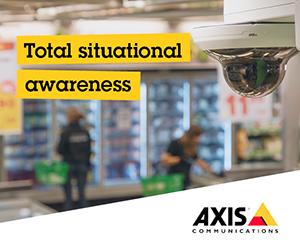INDUSTRY FOCUS
Passport to CCTV Compliance
New guidelines on the legal installation and use of CCTV systems have been introduced by the Surveillance Camera Commissioner.
Tony Porter has launched a ‘Passport to Compliance’ document for when organisations are considering the procurement and installation of a surveillance camera system.
According to Mr Porter, it is crucial to be able to specify what they want the system to do, how they want it to perform and also to ensure that it complies with all relevant regulations. Costs to procure and operate are also key points.
The “Passport to Compliance’ places the responsibility for CCTV system development in the hands of the organisations that operate them.
It guides organisations on the stages they need to go through when planning, installing and eventually operating surveillance camera systems. It should be completed for new systems or where there’s a significant change to an existing system - for example, due to the addition of a large number of cameras.
Following the ‘Passport to Compliance’ document will help organisations to meet the 12 guiding principles in the Surveillance Camera Code of Practice and, while not a guarantee, other relevant legislation such as the Data Protection Act and the Human Rights Act.
The ‘Passport to Compliance’ is aimed primarily at public space CCTV surveillance systems such as those operated by local authorities or in large shopping centres, although it can be used for any type of surveillance camera system.
Surveillance Camera Commissioner Tony Porter commented: “I’m delighted to be able to launch the ‘Passport to Compliance’.
“It enhances, updates and simplifies the widely-used Home Office ‘Operational Requirement’ document and aims to reduce technical jargon to enable procurement experts within organisations to have the ability to properly hold suppliers to account where non-compliance with the Surveillance Camera Code of Practice is evident.
“It has been designed with the help of industry experts and thoroughly tested, and I’m confident that it can make a real difference to how surveillance camera systems are planned, installed and operated.





